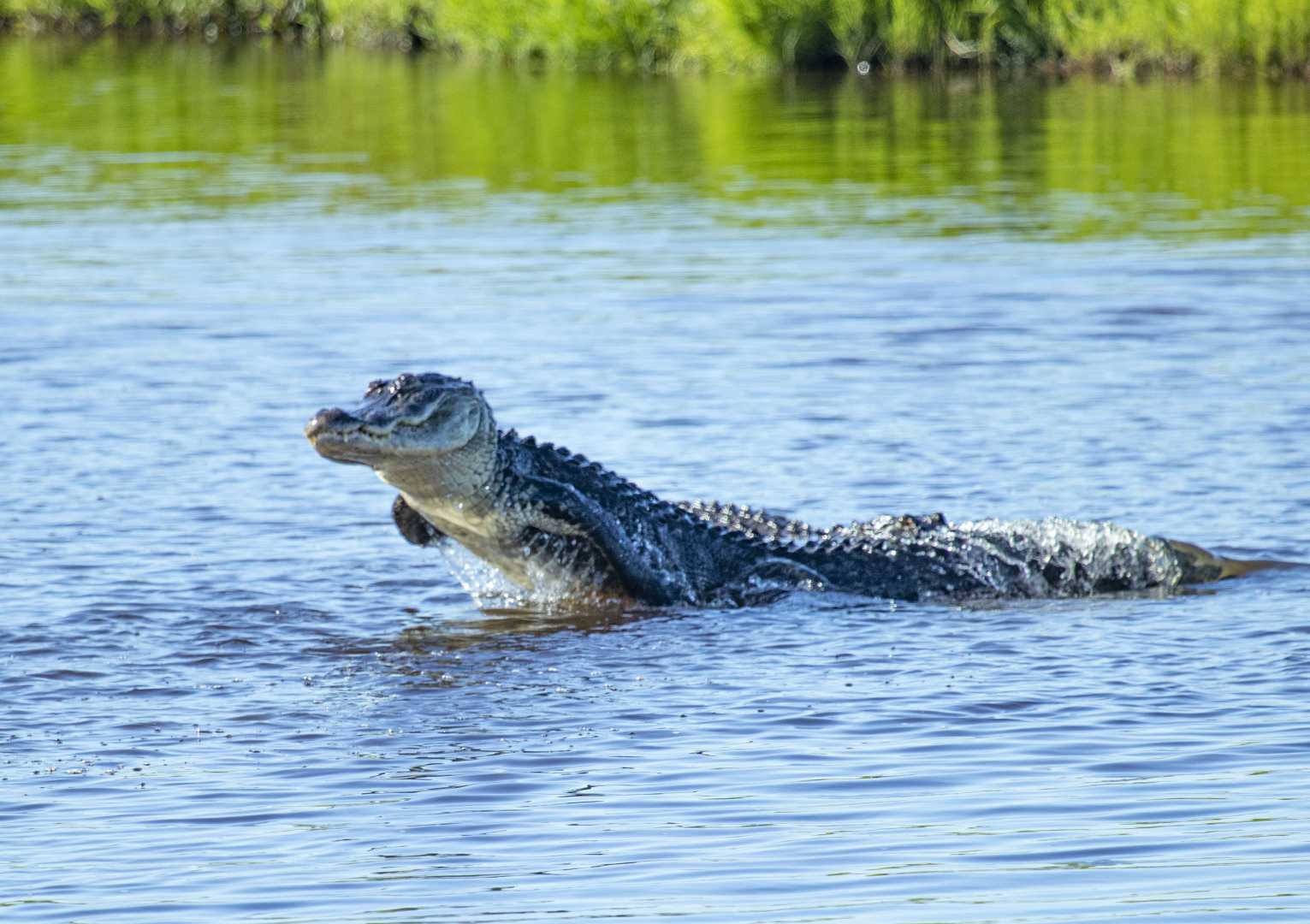News
Study Finds Human Behavior, Not Alligators, Leads to Bites

GAINESVILLE, Fla. — Researchers from the University of Florida and Centre College in Kentucky have released a pivotal study indicating that risky human behavior is primarily responsible for most alligator bites, not the creatures’ aggression. Published in the journal Human—Wildlife Interactions, the research unveiled a ranking system for human actions leading up to alligator encounters, revealing that in 96% of recorded incidents, human inattention or recklessness played a crucial role.
Frank Mazzotti, Ph.D., a professor of wildlife ecology at UF and a co-author of the study, stated, “The findings show how alligator bites are not random; they’re preventable.” He emphasized the importance of public awareness, especially as alligator mating season approaches. From April to June, increased movement among alligators signals heightened vigilance and territorial behavior, making it even more essential for people to adopt safe practices around these animals.
The research team evaluated nearly 300 years of human-alligator interactions, utilizing the CrocBITE database and other sources from 1734 to 2021 to track incidents. They categorized risky human behaviors into four levels: no risk, low risk, moderate risk, and high risk. Most bites occurred after individuals engaged in moderate-risk activities, such as swimming or wading in known alligator habitats. Fatal incidents were more likely linked to high-risk behaviors, like intentionally entering waters inhabited by alligators.
Mazzotti noted, “The overwhelming majority of bites stem from humans engaging in risky behavior in environments where alligators live, so we should not refer to these encounters simply as ‘attacks.’” This perspective reframes public understanding about alligator interactions, spotlighting the human responsibilities involved.
Mark Teshera, the study’s lead author, remarked, “It was important to create a ranking system for risky human behaviors.” He cited the necessity of situational awareness similar to precautions hikers take in bear territory or swimmers take in shark-infested waters, suggesting that both the public and wildlife managers need to enhance educational strategies around alligator habitats.
Unexpectedly, the findings revealed a high percentage of human recklessness. For instance, many bites occurred during seemingly benign actions like walking pets near water. Mazzotti illustrated this risk by comparing it to “waving a barbecued rib under the nose of your neighbor,” highlighting the obvious provocation. He encouraged responsible dog ownership near water bodies, advocating for leashing pets to prevent dangerous situations.
Fatalities related to alligator bites are rare, but they do occur, emphasizing the need for education around alligator behavior. For example, an incident in Fort Pierce in 2023 resulted in the tragic death of an 85-year-old woman while walking her dog near water, reminding the community of the importance of remaining vigilant.
Researchers assert that educating the public about safe practices can reduce risk. “By examining these risk categories and the activities preceding bites, we hope to remind the public how crucial it is to maintain situational awareness in alligator country,” Teshera said. “Increased awareness can protect both people and wildlife.”
The study advises that wildlife managers engage in diverse communication methods to promote safer behaviors in alligator territories. Enhanced public education could help prevent future alligator bites and avoid unnecessary euthanization of these creatures in response to human-caused incidents.












